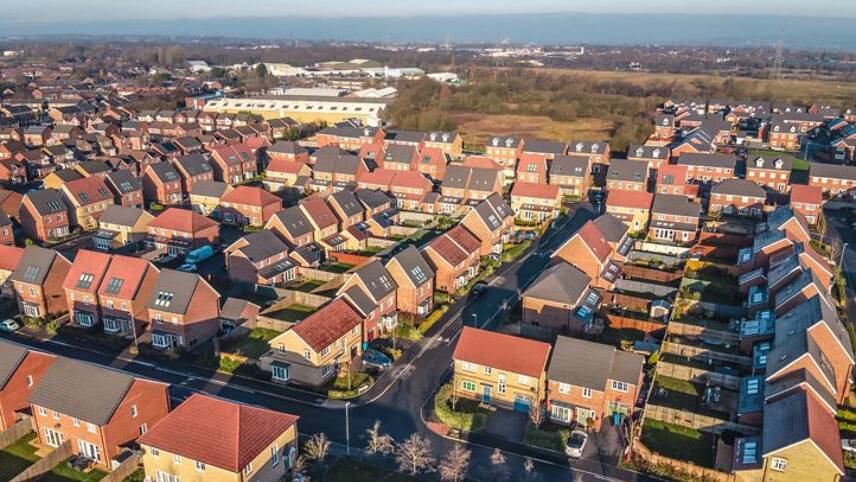Register for free and continue reading
Join our growing army of changemakers and get unlimited access to our premium content

The paper are for the UK government to raise the minimum threshold for Energy Performance Certificate (EPC) ratings required to lease or sell a property
The paper, published by Bankers for Net Zero and the Green Finance Institute, claims that an estimated 29 million homes need to be retrofitted with low-carbon solutions if the UK is to meet net-zero emissions by 2050.
Heating and powering homes make up 23% of the UK’s carbon footprint. Tackling these sources of emissions will also assist with job growth across the UK, notably for small and medium-sized organisations (SMEs), the paper adds.
Indeed, the retrofit industry consists mainly of SMEs and this sector will need to grow by at least a factor of 10 to deliver the required levels of retrofits. The paper calls for a “clear plan” for the industry to be introduced by Government.
The Green Finance Institute’s programme director Emma Harvey said: “Addressing the £360bn investment gap to decarbonise the UK’s building stock requires innovative thinking on the funding models, business practices and policies that will drive retrofitting at scale.
“Today’s report outlines the practical solutions and initiatives that can catalyse rapid growth along the retrofit supply chain, support green collar jobs across the country, and reinforce the UK’s global position in the green finance landscape.”
Bankers for Net-Zero was set up in July last year. Barclays, Triodos, Tide, Handelsbanken and the Ecology Building Society became the first banks to sign up to the commitment. The initiative sees banks lead cross-sector discussions with businesses and policymakers to outline ways to de-risk the net-zero and unlock capital to assist with the green recovery.
The report outlines six ‘high-potential’ solutions that would enable the finance sector to address the £360bn investment gap. It claims that increased access to sustainability-linked loans should be made available for SMEs. Small businesses should also be able to access a dedicated green fund to assist with retrofits.
The paper also calls for green strings to be attached to existing public finance schemes and use guarantees to “crowd in” private capital and that an advisory hub is created to share best-practice between customers, suppliers and finance providers.
Additionally, better assessments of property performance in relation to energy efficiency should be prioritised, alongside new accelerators to enable SMEs to grow.
Two key calls from the paper are for the UK government to raise the minimum threshold for Energy Performance Certificate (EPC) ratings required to lease or sell a property and to set out a strategy that places a carbon price on every tonne of CO2 emitted nationally.
Bankers for Net-Zero has previously told MPs that retrofitting the UK’s building stock with low-carbon solutions could reduce national energy costs by £7.5bn a year, create more than 150,000 jobs over a 10-year period and cut carbon emissions by 20%.
Additionally, the Green Finance Institute (GFI) has found that scaling up green retrofitting of the UK’s existing housing stock would require investments of up to £65bn while supporting the economic recovery.
The calls come ahead of the launch of the long-awaited Heat and Buildings Strategy, which is rumoured to be published over the coming days.
Matt Mace


Please login or Register to leave a comment.